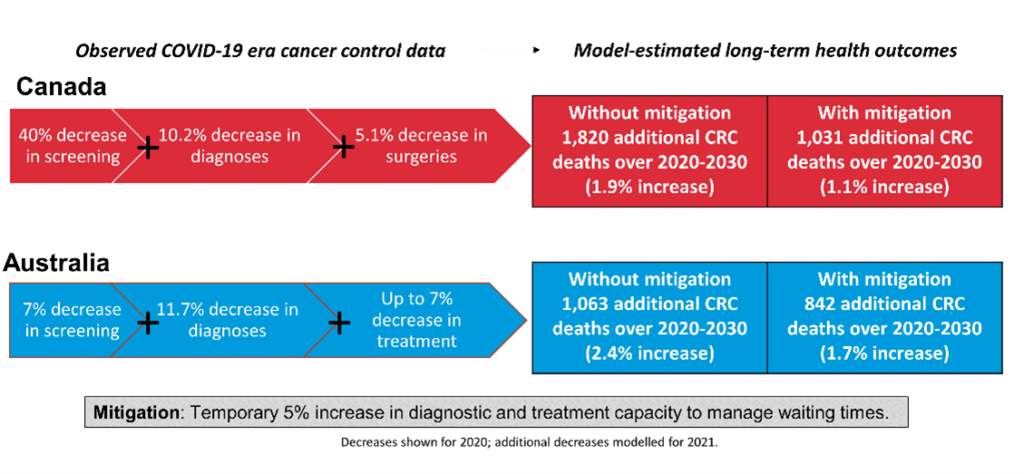A modelling study on the COVID-related disruptions to colorectal cancer screening, diagnosis, and treatment in Australia and Canada
COVID-19 disrupted cancer control worldwide, impacting preventative screening as well as diagnostic and treatment services.
Daffodil Centre researchers and international collaborators conducted a simulation modelling study to investigate whether these disruptions could potentially increase bowel cancer cases and deaths in Australia and Canada. The results, published in PLOS ONE [link tbc], found that while COVID-related disruptions could have a substantial effect on burden of disease, the impact could be mitigated with small increases in screening and treatment capacity.
In 2020, colorectal cancer screening dropped by 40% in Canada and 6.3% in Australia due to COVID-related disruptions. Significant decreases to diagnostic and treatment procedures were also observed in Australia and Canada, leading to additional wait times before patients could access services.
Our modelling projects that if there are no active attempt to mitigate this disruption, this would lead to an estimated increase of 255 colorectal cancer cases and 1,820 colorectal cancer deaths in Canada and 234 cases and 1,186 deaths in Australia over 2020-2030.

To investigate how this increased burden of disease could be mitigated, we simulated a 5% increase in diagnostic and treatment capacity from 2022 to address patient backlogs. Our modelling shows that this strategy could avert 789 deaths in Canada over 2022-2030 and 350 deaths in Australia.
Lead author of the study Dr Joachim Worthington, explains that while modelling demonstrates that downstream effects on disease burden could be substantial “backlogs can be managed and deaths averted with relatively small increases to diagnostic and treatment capacity”.
Associate Professor Eleonora Feletto, lead of Gastrointestinal Cancers Policy and Evaluation stream at the Daffodil Centre adds that “governments have the opportunity to implement careful management of resources to improve patient outcomes after any temporary disruption”. The results of this study “can inform targeted approaches early detection of cancers,” she adds.



